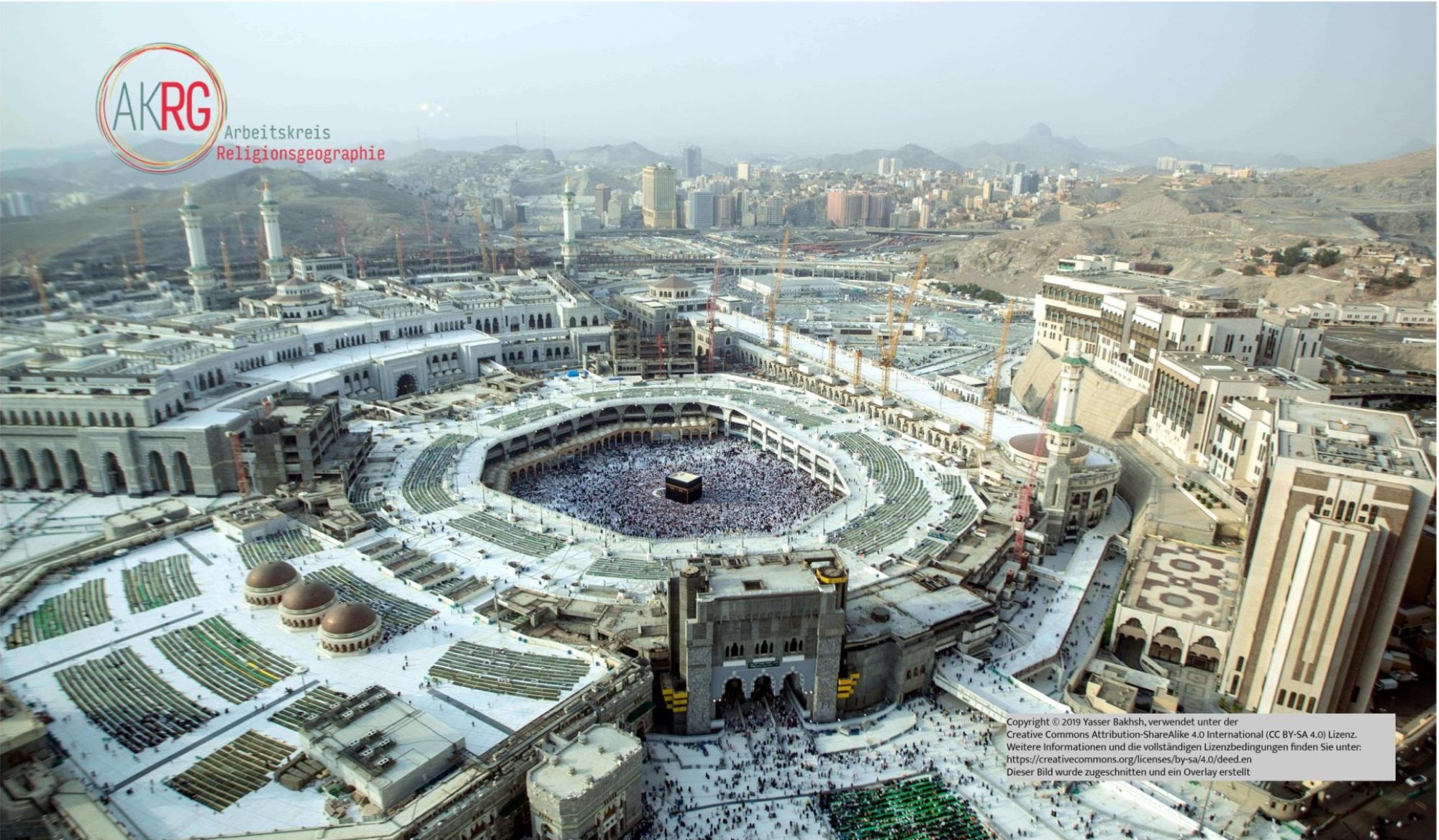Disruptive Dimensions – Spatiality and Temporality of Cataclysms
International Annual Meeting of the DGfG Working Group Geographies of Religion
December 04-05, 2025, Erlangen
Times of catastrophe and crisis mark a moment in which the familiar is disrupted, and a situation of transition from a past to an indeterminate stage. Debates in geographies of religion have to face these thresholds with their irritated imaginations and constructions of spatiality and temporality. End-time cataclysms (κατά down, κλύζειν flush) shake all areas of human and non-human coexistence.
The annual conference 2025 of the DGfG Working Group Geographies of Religion therefore addresses the topic “Disruptive Dimensions – Spatiality and Temporality of Cataclysms” and invites researchers and interested parties to contribute to the complex interdependencies of temporality, space, society and religion in the context of end-time narratives.
In times of borderline experiences caused by catastrophes, concepts of life, suffering and death, of spatiotemporalities and concepts of religion are renegotiated. In the spaces of life-threatening events, perceptions of the present, the past and the future, as well as time dilation, resistance and mobility shift. There is a heightened sense of the current; imaginations of the apocalyptic and the end time are updated and (re-)produced; catastrophe scenarios describing the planetary situation can call for political action.
Questions about trans-temporality, local histories, the (re-)making of places, the entanglement of time, space, agency, processuality (cf. Bruno Latour 1997, “Trains of Thought”, 179: “timing, spacing, and acting”) and the geometries of power can offer approaches to the discussion of current cataclysms. Thereby, concepts of cataclysms are shaped by many religious and cultural contexts. Continuously placing and displacing in the world (see Thomas Tweed 2008, Crossing and dwelling) as a self-locating and being located implies both geographical and religious worldviews, also as worldmaking and worldending.
What role do body, age, gender and sexuality play in the imagining of temporal spaces in the crisis? What role play ‘globalization’ and ‘cultural difference’? What other spaces, rituals and practices emerge through the loss of biodiversity, after forest fires or in situations of land loss as living spaces? How can (neo-)imperial and (neo-) colonial imaginations of temporality and spatiality be analyzed and described in relation to questions of secularity and religion?
The annual conference will present a broad spectrum of research on the complex dynamics and entanglements of spatialities and temporalities in relation to crises. We therefore invite the submission of abstracts for academic papers, as well as short highlights or panel discussions—on the theme of the annual conference or on other topics in geographies of religion. We particularly encourage the submission of contributions with interdisciplinary approaches that bring new perspectives and methods to the discussion. Presentations by researchers in the doctoral or postdoctoral phase who wish to present their own approaches and discuss them in a constructive and supportive environment are particularly welcome.
The working group meeting of the DGfG Working Group Geographies of Religion will take place under the local leadership of Diana Lunkwitz (Erlangen-Nuremberg) and the team of speakers (Frank Meyer [Leipzig], Franziska Sandkühler [Jena], Stefan van der Hoek [Bochum]) on December 4 and 5 in Erlangen. The event is scheduled to start at 1 p.m. on December 4 and end at 3 p.m. on December 5. Exact times and locations will be announced by November 1, 2025, at www.ak-religionsgeographie.de and to all submitters. The fee-based registration will be possible online from October (approximately €25 registration fee towards expenses to be paid in cash on site).
Please send your abstracts for presentations (20 min) or short spotlight contributions (10 min) of max. one page to f_meyer@leibniz-ifl.de by September 1st, 2025. We also welcome suggestions for panel or discussion formats. Notifications of acceptance will be provided by October 1st, 2025.
Information on accommodation in Erlangen:
A.B. Hotel, https://www.abhotel.de (€)
Hotel Mirabell, https://mirabell-hotel.de (€)
Hotel Stadthaus, https://www.stadthaus-erlangen.de (€€)
Altstadthotel Grauer Wolf, https://www.grauer-wolf.de/de (€€)
Holiday Inn Express, https://www.ihg.com/holidayinnexpress/hotels/de/de/erlangen/zczel/hoteldetail (€€€)

